1. Unpermitted Accessory Dwelling Units (ADUs)
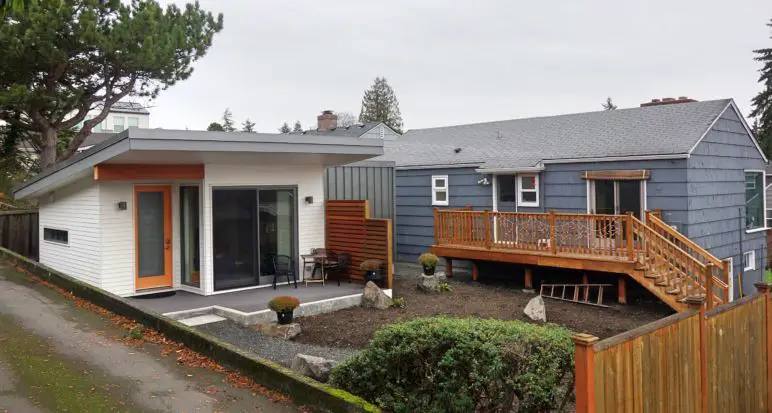
The growing need for affordable housing and multi-generational living has spurred the popularity of Accessory Dwelling Units, or ADUs, such as backyard cottages or converted garages. However, many homeowners construct these units without obtaining the necessary permits, often due to a lack of awareness or a desire to expedite the process, says Investopedia. This oversight can lead to significant legal repercussions.
Local zoning ordinances often have specific regulations regarding the size, placement, and occupancy of ADUs, and unpermitted structures can face hefty fines, mandatory demolition orders, or legal action from neighbors citing zoning violations. As municipalities grapple with housing shortages, the legal landscape surrounding ADUs is becoming more complex and rigorously enforced, making proper permitting crucial.
2. Overgrown Landscaping and Nuisance Vegetation
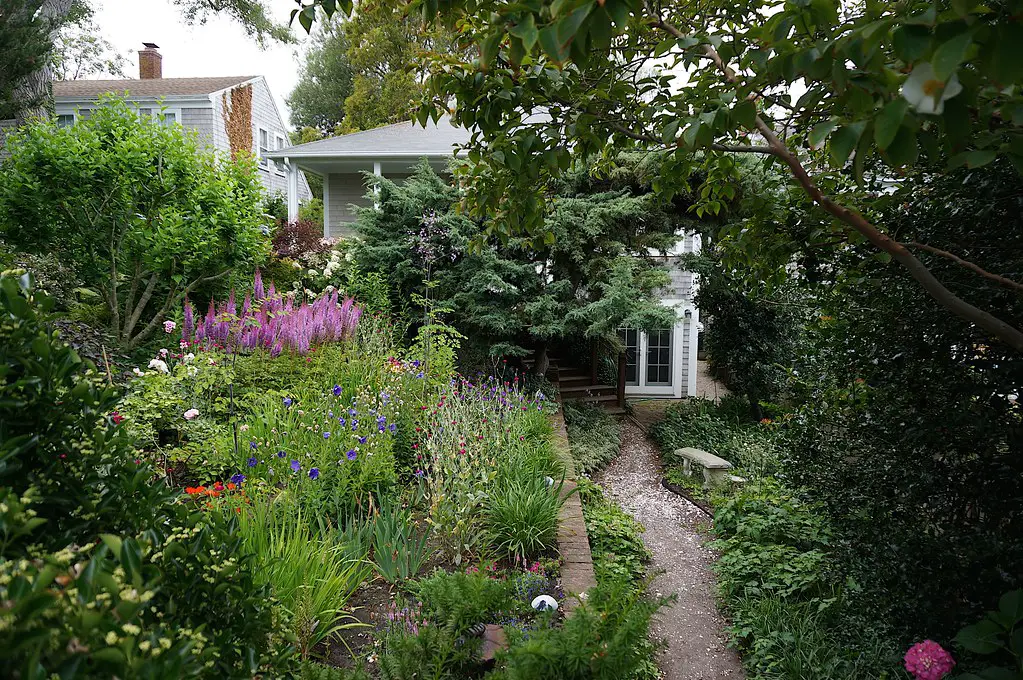
While lush greenery can enhance a suburban home’s curb appeal, neglecting landscaping can transform it into a legal liability. Many municipalities have ordinances addressing overgrown vegetation that can harbor pests, obstruct public rights-of-way, or pose fire hazards. Disputes with neighbors over encroaching trees or unkempt lawns are also common, notes Mass Injury Group.
Homeowners can face warnings, fines, and even legal action from local authorities or disgruntled neighbors if their landscaping is deemed a nuisance. Staying on top of yard maintenance and adhering to local ordinances regarding vegetation height and property line boundaries is essential for avoiding these legal entanglements.
3. Improper Drainage and Water Runoff
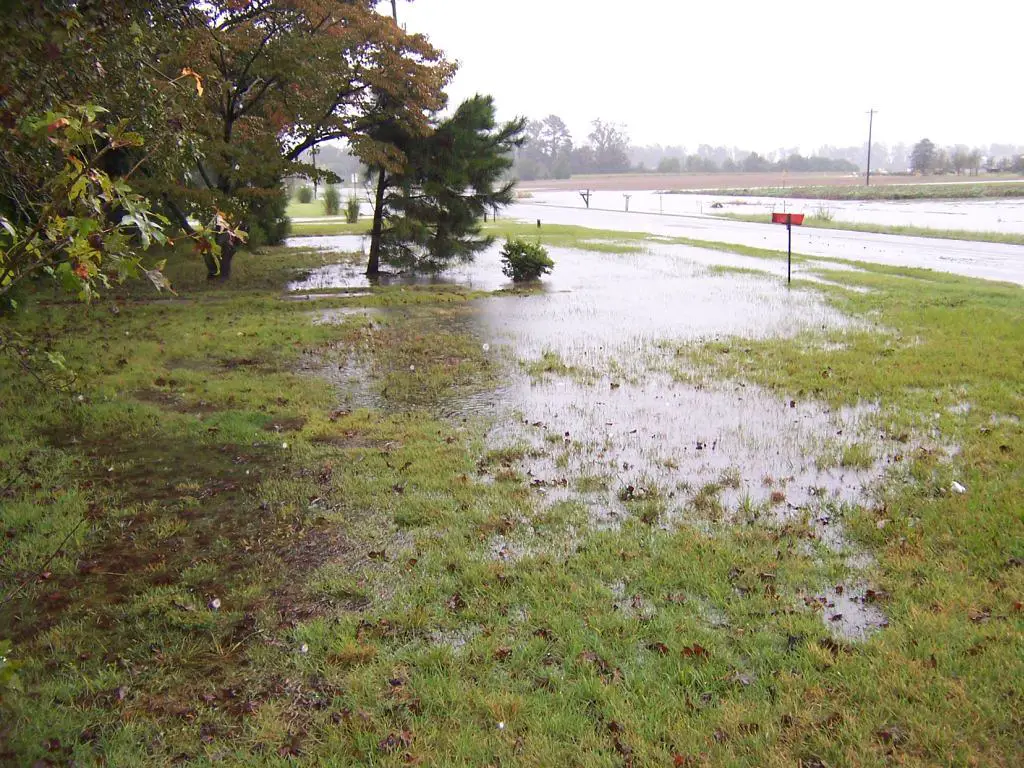
Suburban properties are typically graded to manage rainwater runoff and prevent flooding. Altering this natural drainage pattern without proper engineering and permits can lead to legal headaches, notes FindLaw, particularly if it negatively impacts neighboring properties. Disputes over water damage caused by redirected runoff are a frequent source of contention.
Local stormwater management regulations are designed to protect both individual properties and the broader community. Homeowners who undertake landscaping or construction projects that interfere with established drainage patterns without proper authorization can face legal action and be held liable for damages to adjacent land.
4. Noise Violations from Outdoor Activities

Suburban life is often associated with peace and quiet, but certain outdoor activities can disrupt this tranquility and lead to noise complaints and legal issues. Excessive noise from power tools, loud music, or even barking dogs can violate local noise ordinances, which often specify permissible decibel levels and times of day for such activities, says Nolo.
Homeowners who repeatedly violate noise ordinances can face fines and legal action from their municipality or neighbors seeking injunctive relief. Being mindful of noise levels and adhering to local regulations is crucial for maintaining harmonious neighborhood relations and avoiding legal trouble.
5. Unsafe or Non-Compliant Structures
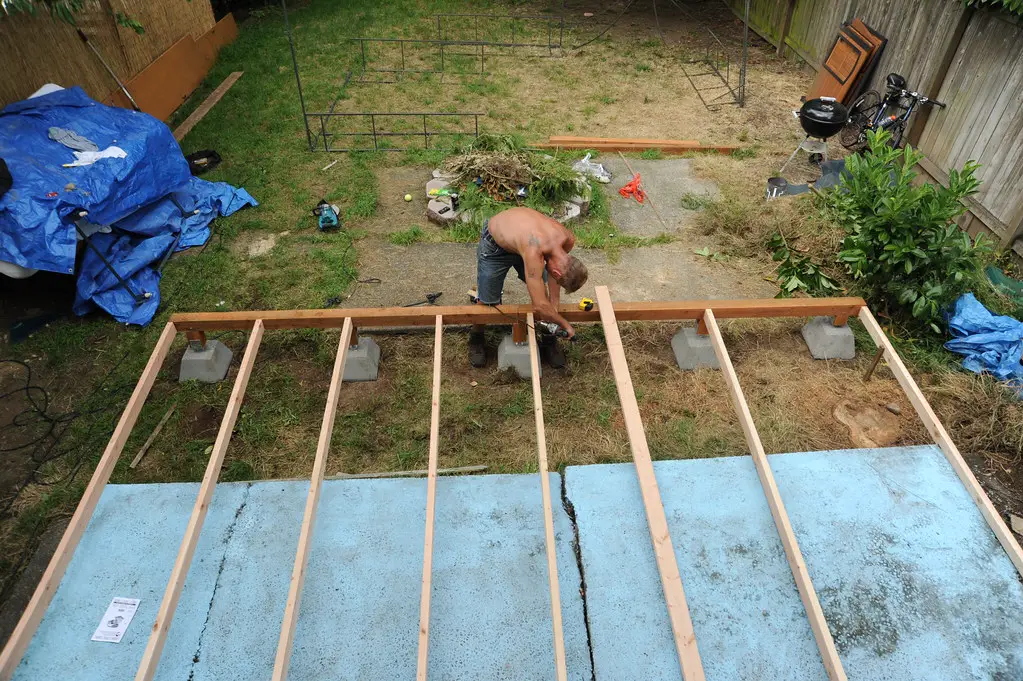
Features like decks, fences, and retaining walls, while common in suburban homes, must be constructed and maintained according to local building codes and safety standards. Failure to do so can result in liability issues if someone is injured due to a structural defect or code violation.
Municipalities often conduct inspections to ensure compliance with building codes, and homeowners can be required to make costly repairs or even remove non-compliant structures. Ensuring that all such features are built with proper permits and maintained in a safe condition is paramount for legal protection.
6. Zoning Violations from Home-Based Businesses

The rise of remote work has led to an increase in home-based businesses operating in suburban areas. However, many homeowners fail to realize that local zoning ordinances often restrict the types and scale of commercial activities allowed in residential zones. Operating a business that generates excessive traffic, noise, or signage can lead to legal challenges.
Municipalities enforce zoning regulations to preserve the character of residential neighborhoods. Homeowners operating businesses that violate these rules can face cease-and-desist orders, fines, and legal action to compel compliance. Understanding and adhering to local zoning laws regarding home-based businesses is crucial.
7. Restrictions on Exterior Modifications in HOAs
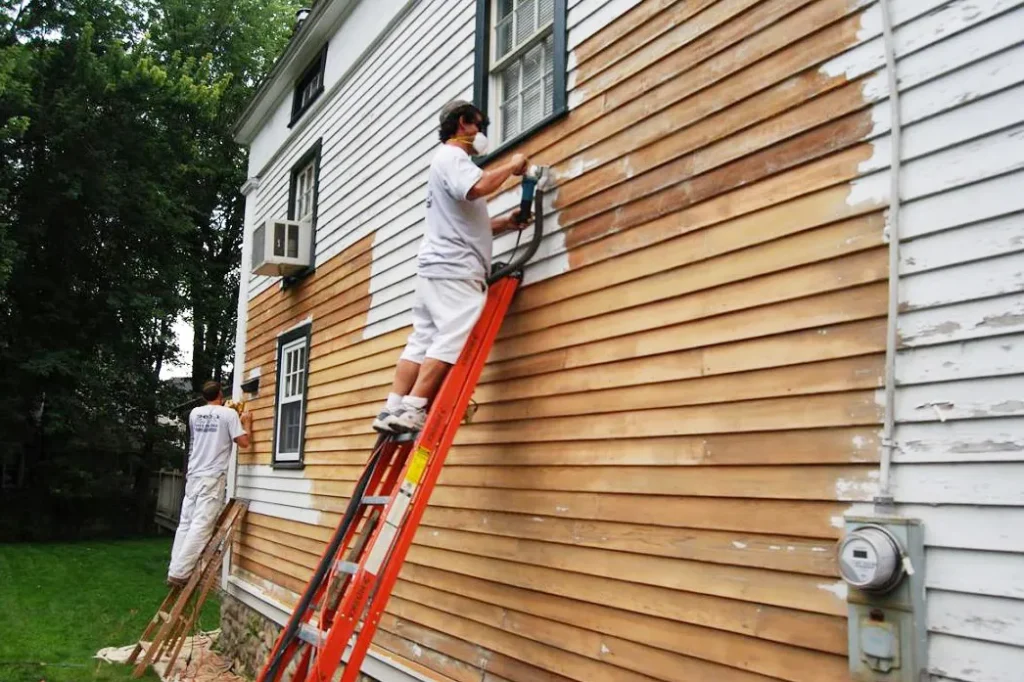
Many suburban homes are part of Homeowners Associations (HOAs) that have specific rules and regulations governing exterior modifications, ranging from paint colors and landscaping to the installation of solar panels or satellite dishes. Failing to obtain approval for such changes can lead to legal disputes with the HOA.
HOA covenants are legally binding agreements, and homeowners who violate these rules can face fines, demands for removal or alteration of unapproved modifications, and even legal action by the association to enforce compliance. Thoroughly understanding and adhering to HOA guidelines is essential for avoiding these conflicts.
8. Blocking Public Easements or Rights-of-Way

Suburban properties often have public easements for utilities or pedestrian access that homeowners are legally obligated to keep clear. Erecting fences, landscaping, or other obstructions within these easements can lead to legal challenges from the municipality or utility companies.
Local authorities have the right to enforce the unobstructed access to public easements. Homeowners who impede these rights-of-way can be required to remove the obstructions and may face fines or legal action to ensure compliance.
9. Improper Handling of Hazardous Materials
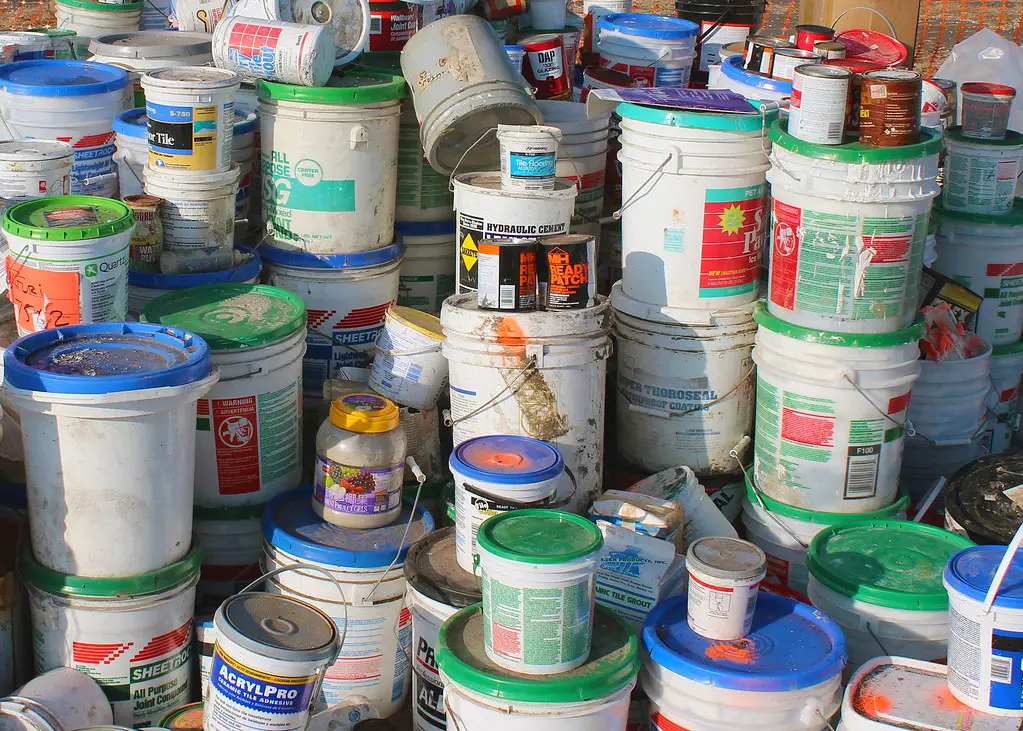
Suburban homeowners may occasionally handle hazardous materials such as paint, pesticides, or automotive fluids. Improper storage or disposal of these substances can violate environmental regulations and lead to legal penalties, particularly if contamination occurs.
Local and federal environmental laws govern the handling and disposal of hazardous waste to protect public health and the environment. Homeowners must adhere to these regulations to avoid fines and potential liability for environmental damage.
10. Issues with Shared Amenities and Agreements

Neighborhoods with shared amenities like private roads, community pools, or shared septic systems often have legal agreements outlining maintenance responsibilities and usage rules. Disputes over these shared resources and the enforcement of these agreements can lead to legal battles among neighbors.
Clearly defined legal agreements and a spirit of cooperation are essential for the smooth functioning of communities with shared amenities. Failing to abide by these agreements can result in legal action to resolve disputes and enforce compliance.
11. Violations of Local Tree Protection Ordinances
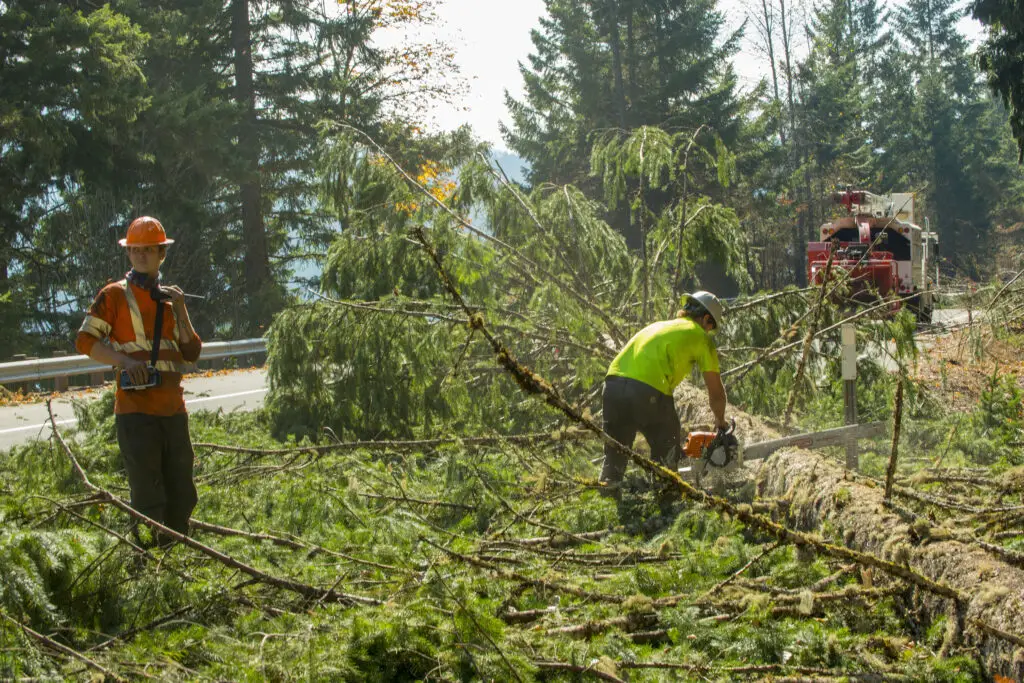
Many suburban areas have ordinances protecting mature trees due to their environmental and aesthetic benefits. Removing or significantly altering protected trees without proper permits can result in substantial fines and legal penalties from the municipality.
These tree protection laws aim to preserve the urban forest and mitigate the environmental impacts of development. Homeowners should familiarize themselves with local tree ordinances before undertaking any landscaping or construction that could affect mature trees on their property.
12. Disputes Over Property Lines and Encroachments
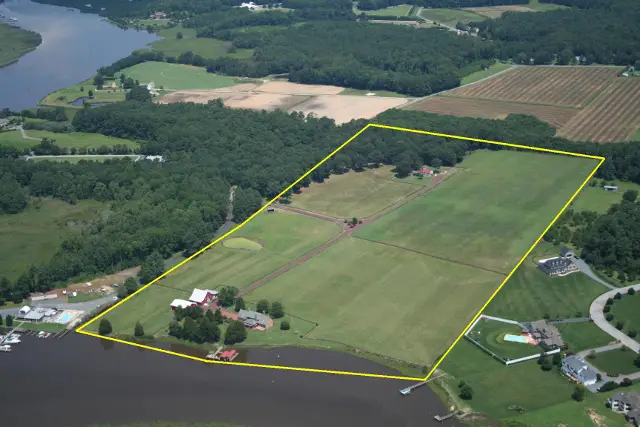
Boundary disputes between neighboring properties are a common source of legal headaches in suburban areas. Fences, sheds, or landscaping that encroach onto a neighbor’s property can lead to legal action to resolve the boundary line and potentially require the removal of the encroaching structures.
Establishing clear property lines through surveys and maintaining open communication with neighbors can help prevent these disputes. When disagreements arise, legal intervention may be necessary to determine the correct boundaries and resolve any encroachments.
13. Failure to Disclose Known Property Defects During Sale
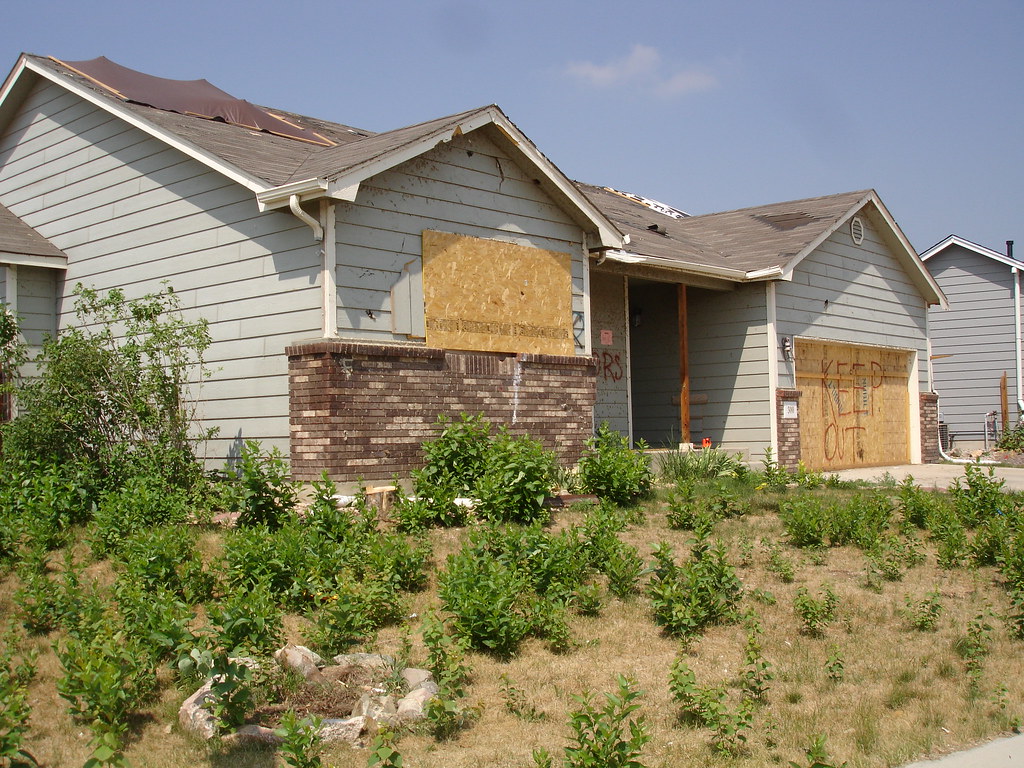
Sellers in suburban real estate transactions have a legal obligation to disclose any known material defects that could affect the value or safety of the property. Failing to disclose issues like structural problems, pest infestations, or water damage can lead to lawsuits from disgruntled buyers after the sale.
Disclosure laws vary by state, but the general principle is to provide buyers with accurate information about the property’s condition. Sellers who intentionally conceal significant defects can be held liable for repair costs and other damages.
14. Unpermitted Pools and Hot Tubs
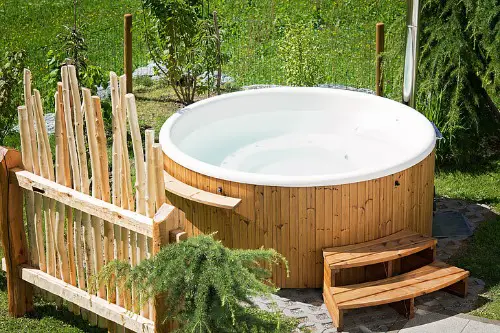
Installing a backyard pool or hot tub can seem like a simple lifestyle upgrade, but skipping the permit process can turn into a legal nightmare. Many municipalities require detailed site plans, safety features like fencing, and inspections to ensure compliance with health and building codes. Homeowners who bypass these steps risk fines, forced removal, or legal liability if injuries occur. Neighbors may also report unpermitted installations, especially if there are concerns about drainage or property value impacts.
Legal trouble can escalate if electrical or plumbing work for a hot tub isn’t up to code. Faulty wiring or improper drainage can create hazards not just for homeowners but for surrounding properties. Municipal inspectors can mandate corrections, and insurance claims may be denied for unpermitted structures. Staying compliant ensures both safety and peace of mind.
15. Security Cameras Aimed at Neighboring Properties
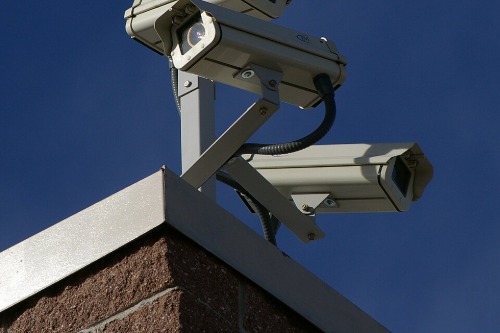
While home security systems are increasingly common, improperly positioned cameras can violate privacy laws and prompt legal action. If a security camera captures footage of a neighbor’s yard, windows, or inside their home, it may be considered an invasion of privacy, especially in states with strong privacy protections. Disputes often arise over whether footage is justified for security or overly intrusive. Even doorbell cameras have sparked lawsuits in dense suburban areas.
Homeowners should aim cameras only at their own property and public areas like sidewalks or driveways. Consulting local ordinances and adjusting camera angles or using privacy filters can help avoid conflict. Courts have sided with plaintiffs in cases where surveillance was deemed excessive or retaliatory. What starts as crime prevention can end in costly litigation if boundaries aren’t respected.
16. DIY Electrical Work Without Permits
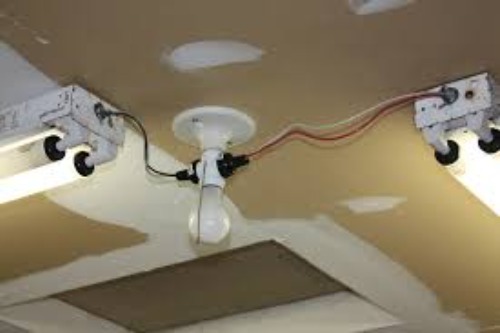
Tinkering with home wiring to add outlets, upgrade a breaker panel, or install lighting might save money—but doing it without permits or inspections can bring serious legal and safety consequences. Municipal codes require licensed electricians for most electrical work, and unpermitted projects may violate both building codes and insurance policies. Electrical fires or shocks resulting from faulty wiring can lead to legal liability. Buyers may also demand retroactive permits and inspections during home sales.
In many suburban areas, failing to get the required electrical permits can delay a property transfer or trigger compliance orders. Even if the work seems minor, improper grounding, overloaded circuits, or incorrect wiring methods can pose long-term risks. Homeowners caught doing DIY electrical work may face fines and be ordered to redo the work professionally. When it comes to wiring, the legal and safety stakes are high.
17. Illegal Short-Term Rentals

As short-term rental platforms like Airbnb gained popularity, many suburban homeowners began offering guest rooms or entire homes without checking local laws. However, numerous municipalities now restrict or ban short-term rentals to maintain residential zoning and avoid nuisance complaints. Running an unlicensed rental can result in fines, license revocation, and neighbor-led lawsuits. Some HOAs and cities require permits, inspections, and even hotel-like taxes.
Ignoring these rules can have long-term consequences for homeowners, including forced eviction of tenants and zoning violations that remain on the property record. In some cases, guests themselves have sued over unsafe conditions in unregulated rentals. Suburban communities are cracking down to preserve neighborhood quiet and consistency. Before listing your home, check the fine print—local laws are evolving quickly.
18. Lawn Irrigation Systems That Violate Water Use Rules
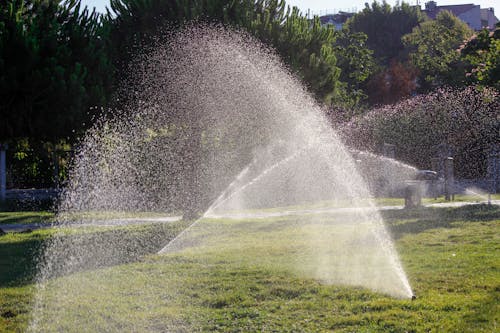
Automated lawn sprinklers may seem like a harmless convenience, but in drought-prone regions, water usage is heavily regulated. Suburban homeowners who operate irrigation systems during restricted hours or exceed usage limits can face citations and escalating fines. Improperly installed systems that waste water or flood sidewalks may also violate municipal codes. As climate concerns grow, enforcement is becoming more aggressive.
Some areas require permits for new systems or mandate smart controllers that adjust based on weather. Backflow prevention devices are often required to protect the drinking water supply. Homeowners who ignore these regulations may also face issues with insurance or resale. Managing your lawn’s thirst responsibly isn’t just environmental—it’s legally necessary in many suburbs.
19. Garage Conversions Without Code Compliance
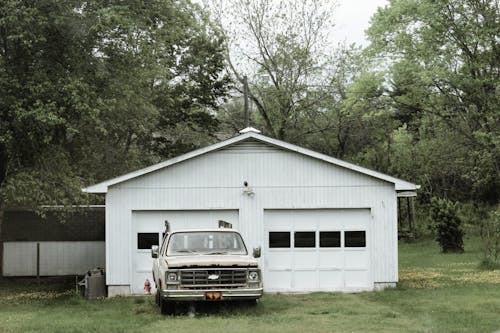
Converting a garage into a bedroom, home office, or gym may add usable space, but it must meet residential building codes and zoning rules. These conversions often require permits for insulation, electrical work, egress, and HVAC modifications. Homeowners who skip these steps risk fines and orders to restore the garage to its original condition. It can also impact property taxes and insurance coverage.
Garage conversions are increasingly scrutinized in areas concerned with parking shortages or unregulated ADUs. Even cosmetic updates can violate fire codes or accessibility requirements. Selling a home with an unpermitted conversion can stall the transaction or lower the appraised value. Legal compliance ensures the added space is safe—and legally defensible.
20. Outdoor Fire Pits and Wood-Burning Appliances

Backyard fire pits, chimineas, and wood-burning stoves may seem like charming additions, but they’re often subject to strict local fire safety laws. Some municipalities ban open wood fires due to air quality regulations or wildfire risk, particularly in high-risk zones. Violating these restrictions can result in warnings, fines, and in some cases, citations from fire departments. Neighbors may also complain if smoke affects their enjoyment of their own property.
Certain suburbs require permits for fire pits, and gas-fueled models are sometimes the only legal option. Even where allowed, fire features must follow clearance and spark-control rules. Insurance companies may deny claims for fire damage linked to unpermitted outdoor flames. Following fire codes is essential to enjoy backyard ambiance without legal flare-ups.
21. Illegal Fencing or Height Violations
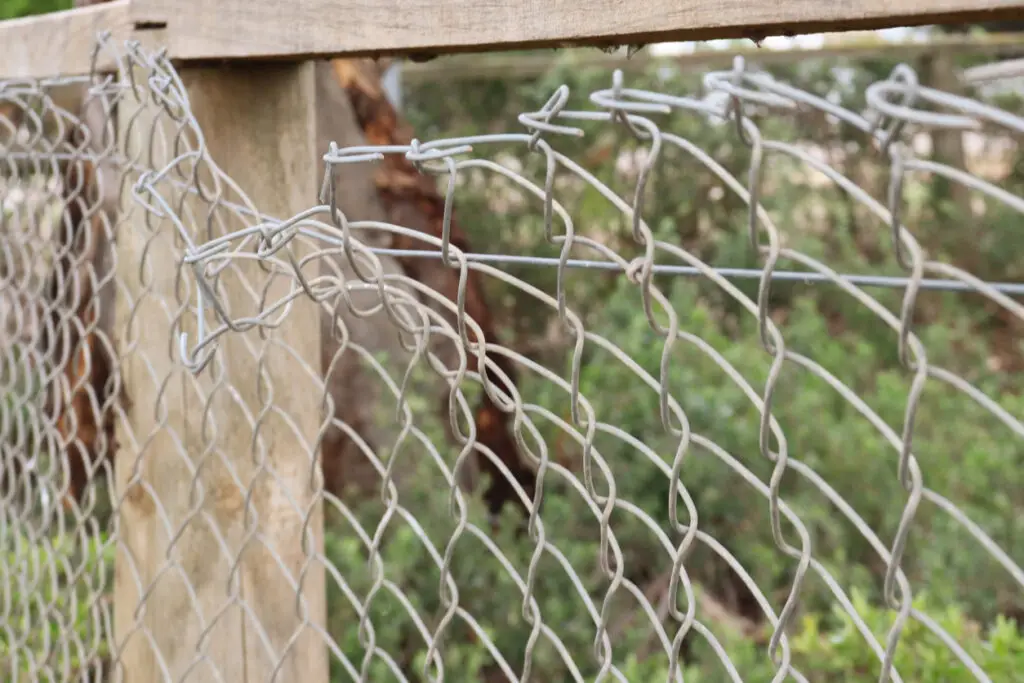
Suburban fencing regulations vary widely and are often misunderstood by homeowners seeking privacy or security. Installing a fence over the allowed height limit or on public property can lead to zoning complaints, fines, and even orders to dismantle it. Setback requirements, materials, and visibility rules often dictate what kind of fencing is allowed. Violating these rules can lead to disputes with both municipalities and adjacent neighbors.
Height limits in front yards, for example, are often capped at 3–4 feet to maintain line-of-sight for drivers and pedestrians. Rear fences might allow more height but still require permits. Certain materials, like barbed wire or metal spikes, are outright banned in residential zones. Before fencing in your dream yard, make sure you’re not boxing yourself into a legal mess.
This post 13 Suburban Home Features That Are Becoming Legal Headaches was first published on Greenhouse Black.
